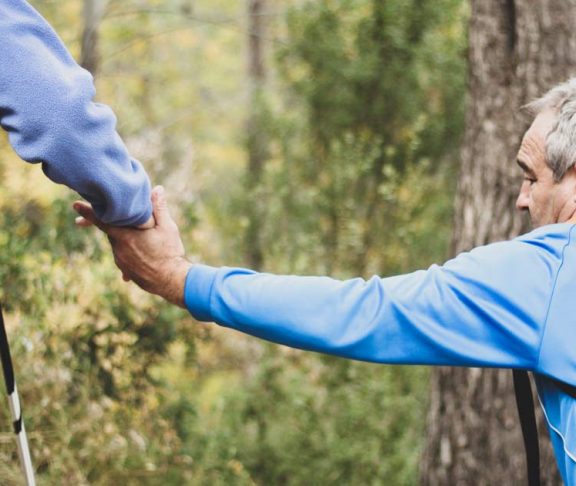
Jim Reidy
Atrial Fibrillation Patient
Six months after Jim Reidy had a stroke, he was diagnosed. Now, he lets us in on how he’s led a ‘completely normal life with atrial fibrillation.’
How did you find out you had atrial fibrilation?
I currently live a normal life with atrial fibrillation , but it wasn’t until I had a stroke about three years ago. I exhibited all the signs of FAST [Face, Arms, Speech, Time stroke response acronym], as the muscles on one side of my face dropped, I couldn’t speak and lost strength in one arm. Therefore it was a bit of a surprise because, even though I was 70, I was in fit enough shape.
At that stage the doctors didn’t know what caused the stroke, so they gave me an external heart monitor. That’s when they diagnosed atrial fibrillation.
What does it mean to live with atrial fibrillation?
Some people don’t even know they have it. I didn’t know I had it until I got the stroke. I could have been living with it for about ten years before the diagnosis! But, since diagnosis and treatment, atrial fibrillation doesn’t affect my day-to-day whatsoever.
Keep doing what your doctor tells you. Keep active, eat well, and don’t eat fatty, salty or sugary foods.
I joined a rehabilitation programme with Croí, the heart and stroke charity based in Galway, and learnt to pay attention to what I eat – minimise fatty foods, eat plenty fruit and veg, and I can’t drink much alcohol. My wife joins me at the programmes there. I exercise five times a week, just a 40-minute brisk walk to get the heart muscles pumping.
What treatment have you undergone?
Atrial fibrillation affects people differently. In my case, I have two or three episodes a year and the danger is a clot forming in the heart. That’s why I‘m on medication.
I’m incredibly happy with the treatment I’ve received from professionals – in Galway, Dublin and through support groups. Thankfully, I can live a completely normal life with atrial fibrillation.
What support have you found helpful?
The programmes at Croí are varied, and all have been fantastic. I go to the Stroke Support Group once a month where we chat about our various experiences and how to lead a normal life with atrial fibrillation and the Croí health team (cardiac nurse specialists, dieticians, physiotherapists) guide us on diet, exercise and supporting mental health; all the various issues you can face.
One of the first programmes I took part in was a mindfulness programme, which is most related to effectively dealing with the anger you can feel after having a stroke and the emotional impact it can have. It runs alongside the exercise programmes and health talks at Croí – the support is absolutely fantastic.
What advice would you offer other patients with atrial fibrillation?
The first thing is to take your medication – it can be life saving. Secondly, keep doing what your doctor tells you. Keep active, eat well, and don’t eat fatty, salty or sugary foods. Thirdly, keeping your body active is great but keep your mind active as well… don’t be afraid to seek support.
They sound like basic things, but you know what they say, ‘Some people never learn.’ We’ve heard this in so many ways, from the press to health journals and still people don’t bother, but seriously, consult your GP and get your heart checked!

